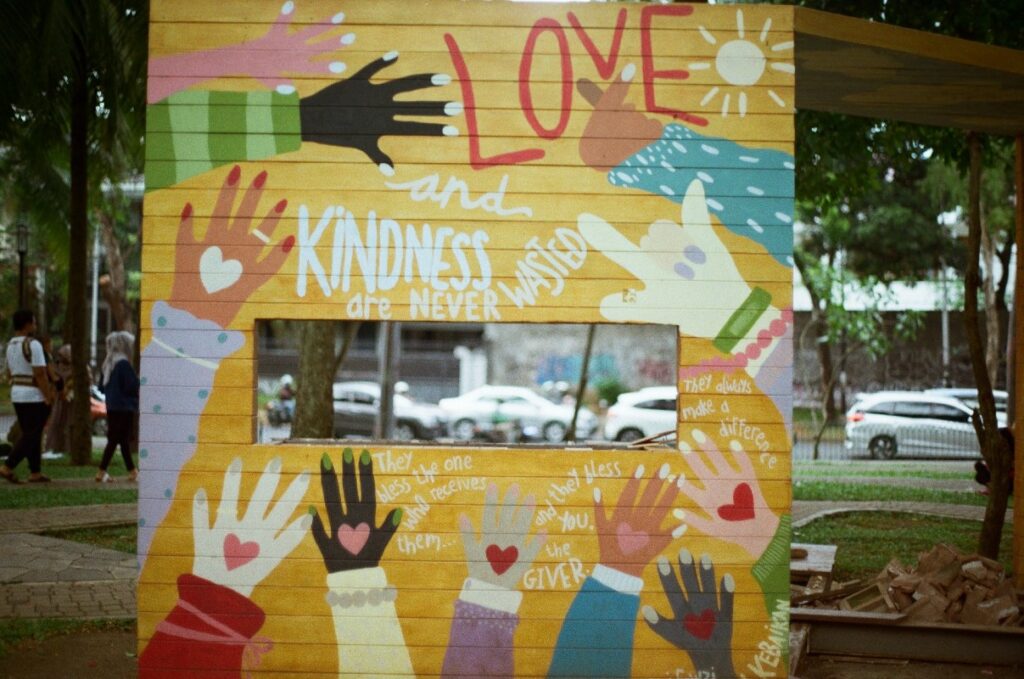
By Andy Brack | It’s been an extremely hectic week so we’re reaching into the opinion vault to recall some lessons offered four years ago when the coronavirus pandemic caused a lot of misery. Remember? Kids were stuck at home with online school. Parents missed work that put food on the table. Some companies closed. And it didn’t take long to find there was nothing much left to watch on TV.
 But amidst the gloom were bright spots of kindness. Neighbors you might not have spoken with in months said hello. You let someone go ahead of you in line at the grocery store. Manners seemed to be back everywhere except in Washington, D.C.
But amidst the gloom were bright spots of kindness. Neighbors you might not have spoken with in months said hello. You let someone go ahead of you in line at the grocery store. Manners seemed to be back everywhere except in Washington, D.C.
“I’m hearing people are making it and not complaining,” noted cookbook author Nathalie Dupree said in April 2020. “Everyone is being very kind to us, bringing us food, making deliveries.”
The Rev. Kylon Middleton, senior pastor at Mount Zion AME Church in Charleston who now serves on Charleston County Council, discovered similar graciousness.
“I am noticing that people are kinder and more intentional,” he said. “As I walk in my neighborhood, either early morning or later in the day, I encounter folks who are being more intentional about speaking and acknowledging the presence of others.
“Even from afar, I see the warmth and hope in the eyes of those with whom I meet. I see a resiliency of spirit that continues to persevere amidst the uncertainty of our times. I see generosity and consideration in something as subtle as negotiating space on a sidewalk or being mindful at the grocery store to only buy what’s needed so that someone else and their family can have access to basic items.”
Former Sumter Mayor Joe McElveen noted back then that he thought the virus challenged everyone to be better.
“For instance, I may be a hardliner who thinks that ‘stay at home’ is for pansies and that I will not die from COVID-19; but I also have a mother, sister, wife or daughter whom I do no not wish to kill or even infect,” he observed. “Do I really enjoy sitting with 70,000 people at a sporting event; or am I kind of liking time around the house with my family? Lots of things we held as indispensable are turning out not to be so important after all.”
State Rep. Chandra Dillard, D-Greenville, said the pandemic caused South Carolinians to be more purposeful about their time with family members.
“My Facebook is full of examples of parents dancing with their kids (and) sharing generational music and simply talking,” she said four years ago. “Communities have become innovative and collaborative about how to serve our most vulnerable populations. This has gotten organizations out of their silos and combining resources.”
Perhaps what was most interesting was how all of this kindness seemed to be organically contagious — that people were doing it on their own, despite spats about politics and nonsense from state and national leaders.
The Charleston City Paper, for example, highlighted nine stories of kindness that included a Mount Pleasant mom and daughter who posted a Joke a Day in their Snee Farm yard, only to be reprimanded by a grumpy homeowners’ association for breaking a sign rule. Charleston police partnered with the city’s parks department to offer safe pop-up Easter egg giveaways for kids. A photographer made fun chalk drawings for backgrounds for neighborhood photos.
These examples were exactly how people across our state and nation should have responded. And four years later, a big lesson from the pandemic: Continue to perform intentional acts of kindness. You’ll be glad you did, as Winston Churchill once alluded to: “We make a living by what we get, but we make a life by what we give.”
Andy Brack is editor and publisher of Statehouse Report and the Charleston City Paper. Have a comment? Send to: feedback@statehousereport.com.


